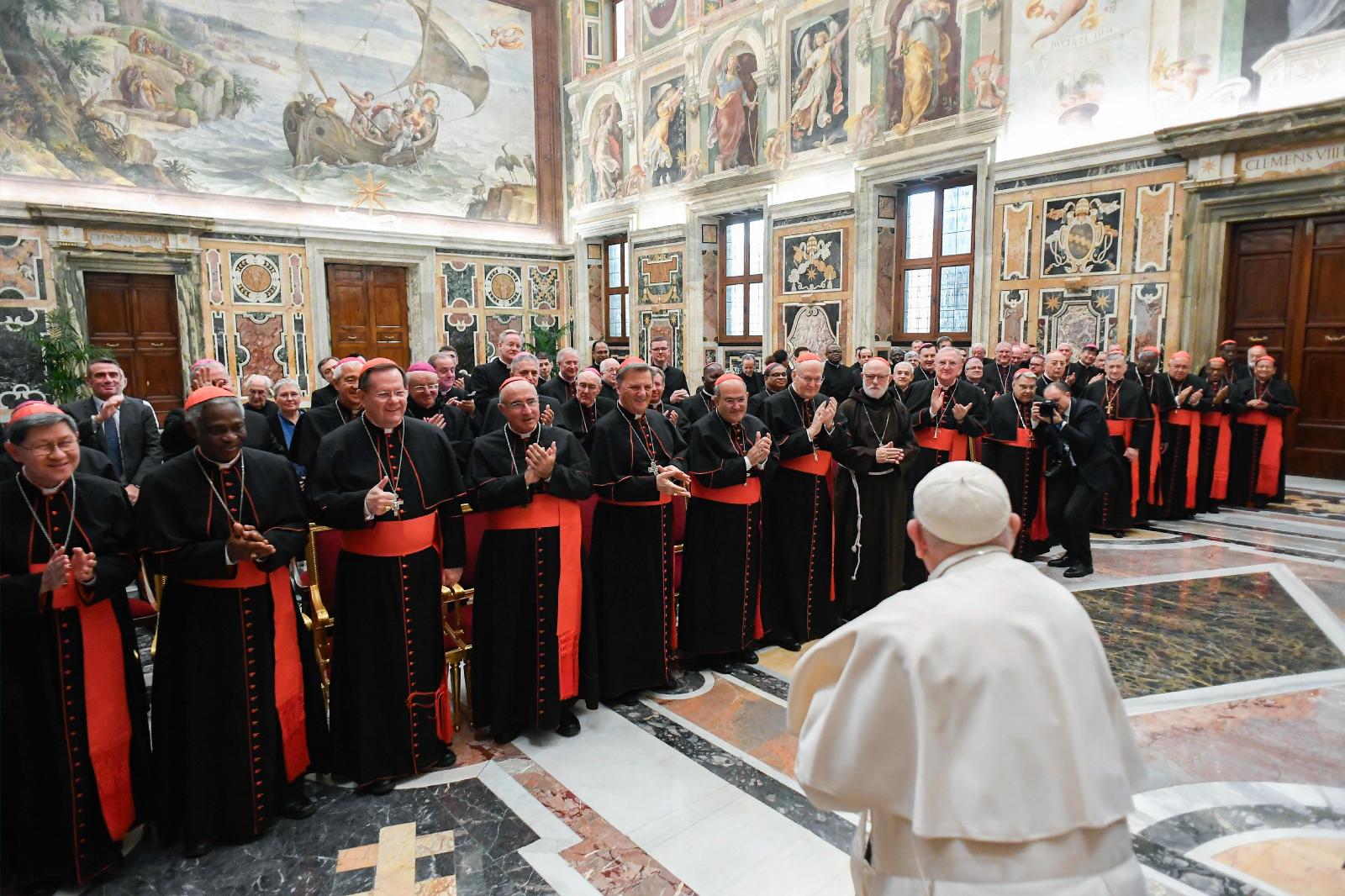Don’t reduce women’s role in church to question of ministry, pope says
VATICAN CITY (CNS) — The importance of women in the Catholic Church cannot be “reduced” to the question of ministry, Pope Francis told members of the Dicastery for Divine Worship and the Discipline of the Sacraments.
Pope Francis made his remarks Feb. 8 in the context of explaining how every attempt at church reform, like the Second Vatican Council’s reform of the liturgy, must be motivated by “spousal fidelity: the church-bride will always be more beautiful the more she loves Christ the bridegroom, to the point of belonging to him totally, to the point of conforming to him fully.”
Mentioning the church as the bride of Christ, the pope added to his prepared text: “I want to say one thing about women’s ministry. The church is woman, the church is mother, the church has its figure in Mary, and the church-woman, whose figure is Mary, is greater than Peter; that is, it is something else.”
“One cannot reduce everything to ministry,” he said. “The woman in herself has a very great significance in the church-as-woman, without reducing it to ministry. This is why I said that every instance of reform in the church is always a question of spousal fidelity, because it (the church) is woman.”
At their plenary meeting in Rome Feb. 6-9, members of the dicastery were focused on ways to improve the liturgical formation of priests and laity.
Drawing members’ attention to the introduction of Vatican II’s Constitution on the Sacred Liturgy, the pope said, “A church that does not feel passion for spiritual growth, that does not try to speak in a way that is understandable to the men and women of its time, that does not feel sorrow for the division among Christians, that does not quiver with anxiety to proclaim Christ to the nations, is a sick church, and these are the symptoms.”
“Without a renewed encounter with Christ, there is no reform of the church,” the pope said. That is why the bishops gathered at the Second Vatican Council in 1962-65 “knew they had to place the liturgy at the center, because it is the place par excellence for encountering the living Christ.”
The more Catholics are educated about the liturgy and by the liturgy, he said, the more the liturgy will be that place of encounter.
Liturgical formation, he said, is not something for “a few experts” but should be a goal for all Catholics.
“Naturally that does not exclude that there will be a priority in the formation of those who, by virtue of the sacrament of Holy Orders, are called to be mystagogues, that is, to take the faithful by the hand and accompany them in learning about the holy mysteries,” Pope Francis said.
Pastors, he said, must “know how to lead the people to the good pasture of the liturgical celebration, where the proclamation of Christ who died and rose again becomes a concrete experience of his life-transforming presence.”
“Begin with the assemblies that gather on the Lord’s Day and on the feasts of the liturgical year,” he said. The Mass itself is the primary opportunity for liturgical formation.
When liturgies are “prepared with pastoral care,” he said, “they become favorable occasions for people to rediscover and deepen the meaning of celebrating the mystery of salvation today.”
